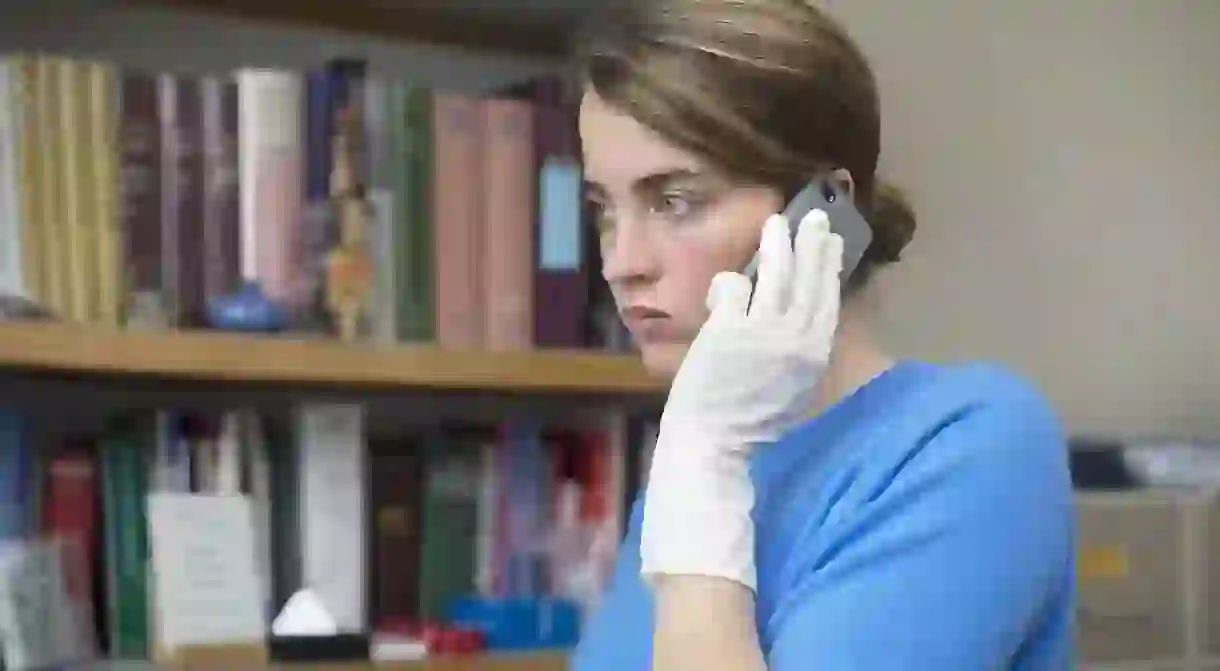Turn No-One Away, Says the Dardennes' 'The Unknown Girl'

Adèle Haenel shines as a young Belgian doctor who tries to unravel a sordid mystery after she tragically makes an error of judgement.
The assumption of guilt, regardless of whether it is warranted, has a tendency to torture the sufferer without respite. Being tidier than life, movies often bring a troubled protagonist forgiveness or a degree of closure. That’s one reason we watch them: to experience vicariously the redemption that eludes us in the hurly burly of getting by. A good actor can make us yearn for her or his character’s exculpation.
So it is with Adèle Haenel’s Dr. Jenny Davin in The Unknown Girl, a film by Belgium’s Jean-Pierre and Luc Dardenne that resonates with me as much as their Rosetta (1999), The Son (2002), and L’Enfant (2005). The Dardennes noted critics’ issues with the film after it screened at Cannes in 2016 and cut seven minutes from it. The final version is watertight.
Jenny is standing in for the ailing older doctor who mentored her, working at his small clinic in Seraing, the Dardennes’ familiar stomping ground in the province of Liège. Dedicated to her work and blessed with a quietly compassionate bedside manner, she has earned herself the opportunity to join a successful practice in a middle-class part of town.

Disaster strikes before Jenny can take up the job offer. She and her intern, Julien (Olivier Bonnaud), are working late one evening when someone rings the outer door buzzer. Tired and frustrated with Julien, who might not be cut out for doctoring, Jenny tells him not to respond to the caller.
The next day they learn that a young African woman has been found dead, her skull fractured, on the banks of the Meuse, close to the clinic. CCTV security footage of the building’s entrance reveals she was the woman whom Jenny had turned away. Jenny is consumed with guilt.
The Dardennes are social realists who frequently use the lineaments of genre films to relay stories of desperate outcasts, outsiders, and the disenfranchised. As they did in Lorna’s Silence (2008), the story of an illegal Albanian immigrant in a sham marriage with a drug addict, the brothers unfold The Unknown Girl like a film noir. While it wasn’t shot expressionistically in black and white, the Dardennes’ regular cinematographer Alain Marcoen gave the film a somber, threatening quality.

To find out how the woman died and discover her identity, so that she may be laid to rest with a name and her family alerted, Jenny turns detective. Though guilt-ridden, she proceeds doggedly, while remaining as attentive as ever to her patients—a man with diabetes she has tea with, a boy with leukemia who sings to her. Haenel’s emotional reticence in the role is something to behold: she masks her turmoil with a solemn, preoccupied look, as if she is constantly asking herself, “What have I done?”
She meanwhile probes her patients for information about the crime. Her quest takes her onto the city’s seedier fringes and she meets with nastiness and danger. Eventually she discovers that the girl, an illegal immigrant, had been working for a prostitute ring with a cyber cafe front. The truth of what happened to her oozes out like pus from a wound.

Dardenne regulars Olivier Gourmet and Jérémie Renier have key roles as locals investigated by Jenny. Ben Hamidou, one of the actors from Two Days, One Night (2014), a Dardennes near-masterpiece with a persistent female protagonist, plays a cop who warns Jenny off the case because whatever information she elicits from her patients is privileged and inadmissible in law.
In her shapeless plaid coat, Jenny is not just a stand-in for a private eye in a white trench coat who’s trying to assuage her guilt. Reminiscent of the driven mining community doctor in The Citadel, A.J. Cronin’s pioneering novel about medical ethics (first filmed in 1938), she is also the film’s conscience.
She manifests collective guilt for her neighborhood’s failure to protect the African woman, and for those Western nations who have closed their borders to refugees. Thanks to Haenel’s taciturn performance, this message is implicit, which makes it infinitely more effective than if she were a noisy campaigner.

Even so, grabbing food on the run as she visits her patients, urging Julien to overcome his nerves and make a commitment to medicine, she is the kind of imperfect, low-level saint to be found in Ken Loach’s films, as well as in the Dardennes’. As such, she is exemplary. Does she get peace of mind? You’ll have to see the movie.
The Unknown Girl is in theaters now.













